Naomi Yamashita
Dynamik: Syntactically-Driven Dynamic Font Sizing for Emphasis of Key Information
Apr 13, 2025



Abstract:In today's globalized world, there are increasing opportunities for individuals to communicate using a common non-native language (lingua franca). Non-native speakers often have opportunities to listen to foreign languages, but may not comprehend them as fully as native speakers do. To aid real-time comprehension, live transcription of subtitles is frequently used in everyday life (e.g., during Zoom conversations, watching YouTube videos, or on social networking sites). However, simultaneously reading subtitles while listening can increase cognitive load. In this study, we propose Dynamik, a system that reduces cognitive load during reading by decreasing the size of less important words and enlarging important ones, thereby enhancing sentence contrast. Our results indicate that Dynamik can reduce certain aspects of cognitive load, specifically, participants' perceived performance and effort among individuals with low proficiency in English, as well as enhance the users' sense of comprehension, especially among people with low English ability. We further discuss our methods' applicability to other languages and potential improvements and further research directions.
Comparing Native and Non-native English Speakers' Behaviors in Collaborative Writing through Visual Analytics
Feb 25, 2025Abstract:Understanding collaborative writing dynamics between native speakers (NS) and non-native speakers (NNS) is critical for enhancing collaboration quality and team inclusivity. In this paper, we partnered with communication researchers to develop visual analytics solutions for comparing NS and NNS behaviors in 162 writing sessions across 27 teams. The primary challenges in analyzing writing behaviors are data complexity and the uncertainties introduced by automated methods. In response, we present \textsc{COALA}, a novel visual analytics tool that improves model interpretability by displaying uncertainties in author clusters, generating behavior summaries using large language models, and visualizing writing-related actions at multiple granularities. We validated the effectiveness of \textsc{COALA} through user studies with domain experts (N=2+2) and researchers with relevant experience (N=8). We present the insights discovered by participants using \textsc{COALA}, suggest features for future AI-assisted collaborative writing tools, and discuss the broader implications for analyzing collaborative processes beyond writing.
Reassessing Evaluation Functions in Algorithmic Recourse: An Empirical Study from a Human-Centered Perspective
May 23, 2024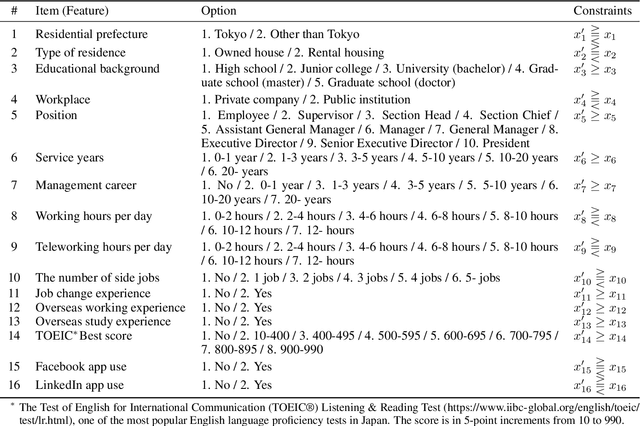
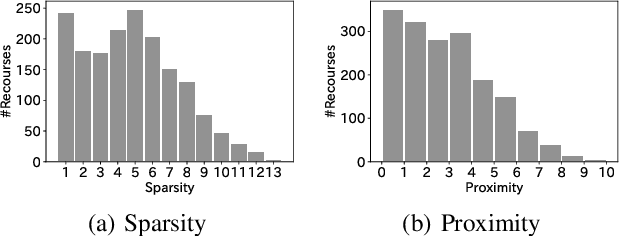
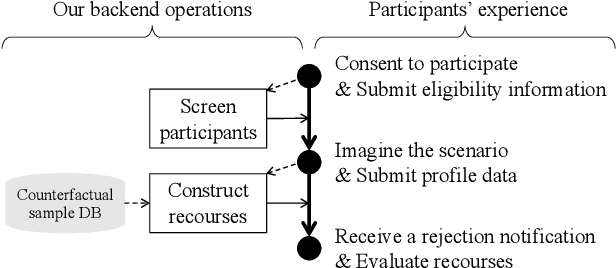

Abstract:In this study, we critically examine the foundational premise of algorithmic recourse - a process of generating counterfactual action plans (i.e., recourses) assisting individuals to reverse adverse decisions made by AI systems. The assumption underlying algorithmic recourse is that individuals accept and act on recourses that minimize the gap between their current and desired states. This assumption, however, remains empirically unverified. To address this issue, we conducted a user study with 362 participants and assessed whether minimizing the distance function, a metric of the gap between the current and desired states, indeed prompts them to accept and act upon suggested recourses. Our findings reveal a nuanced landscape: participants' acceptance of recourses did not correlate with the recourse distance. Moreover, participants' willingness to act upon recourses peaked at the minimal recourse distance but was otherwise constant. These findings cast doubt on the prevailing assumption of algorithmic recourse research and signal the need to rethink the evaluation functions to pave the way for human-centered recourse generation.
Taking a Language Detour: How International Migrants Speaking a Minority Language Seek COVID-Related Information in Their Host Countries
Sep 07, 2022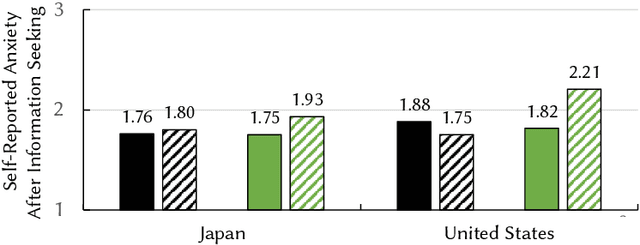
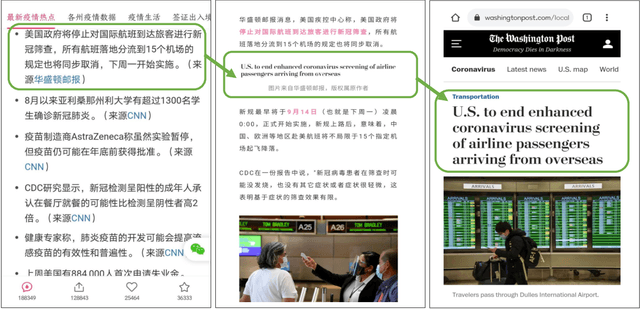
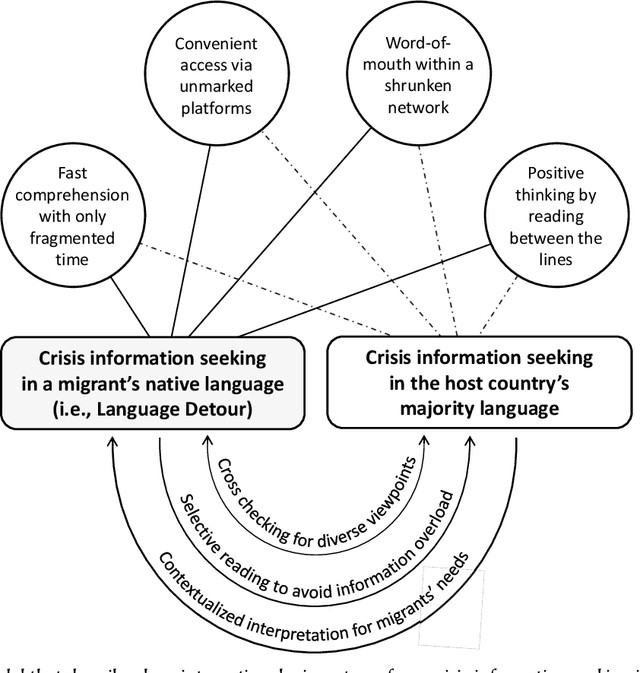

Abstract:Information seeking is crucial for people's self-care and wellbeing in times of public crises. Extensive research has investigated empirical understandings as well as technical solutions to facilitate information seeking by domestic citizens of affected regions. However, limited knowledge is established to support international migrants who need to survive a crisis in their host countries. The current paper presents an interview study with two cohorts of Chinese migrants living in Japan (N=14) and the United States (N=14). Participants reflected on their information seeking experiences during the COVID pandemic. The reflection was supplemented by two weeks of self-tracking where participants maintained records of their COVIDrelated information seeking practice. Our data indicated that participants often took language detours, or visits to Mandarin resources for information about the COVID outbreak in their host countries. They also made strategic use of the Mandarin information to perform selective reading, cross-checking, and contextualized interpretation of COVID-related information in Japanese or English. While such practices enhanced participants' perceived effectiveness of COVID-related information gathering and sensemaking, they disadvantaged people through sometimes incognizant ways. Further, participants lacked the awareness or preference to review migrant-oriented information that was issued by the host country's public authorities despite its availability. Building upon these findings, we discussed solutions to improve international migrants' COVID-related information seeking in their non-native language and cultural environment. We advocated inclusive crisis infrastructures that would engage people with diverse levels of local language fluency, information literacy, and experience in leveraging public services.
 Add to Chrome
Add to Chrome Add to Firefox
Add to Firefox Add to Edge
Add to Edge